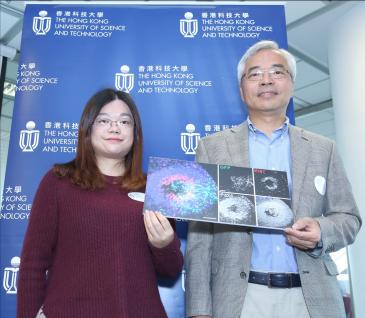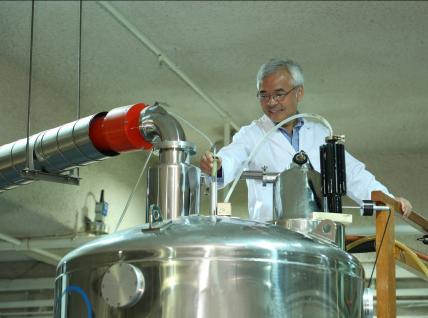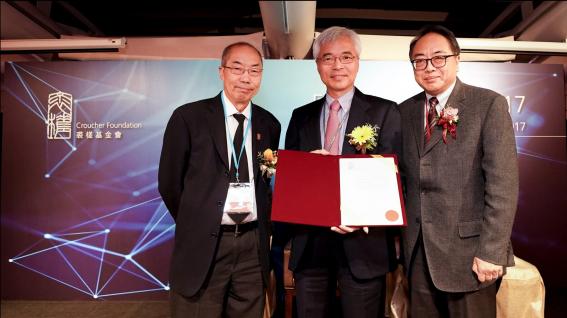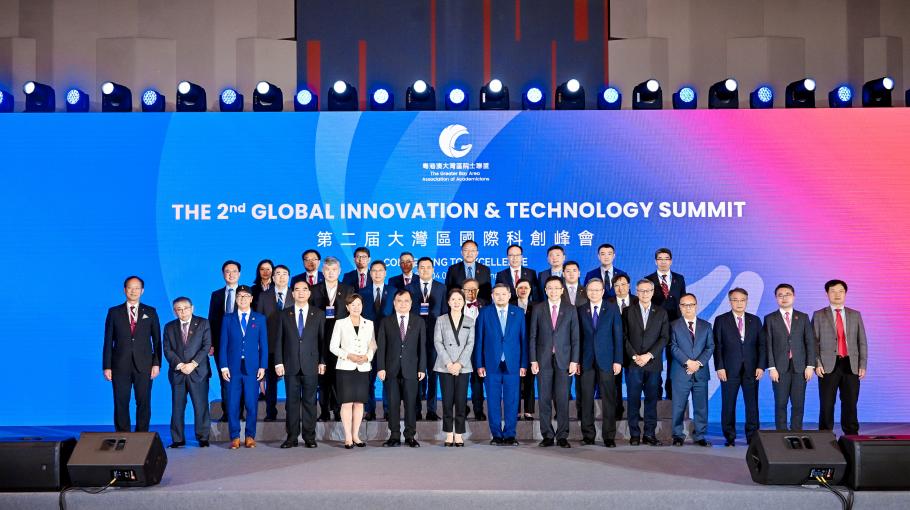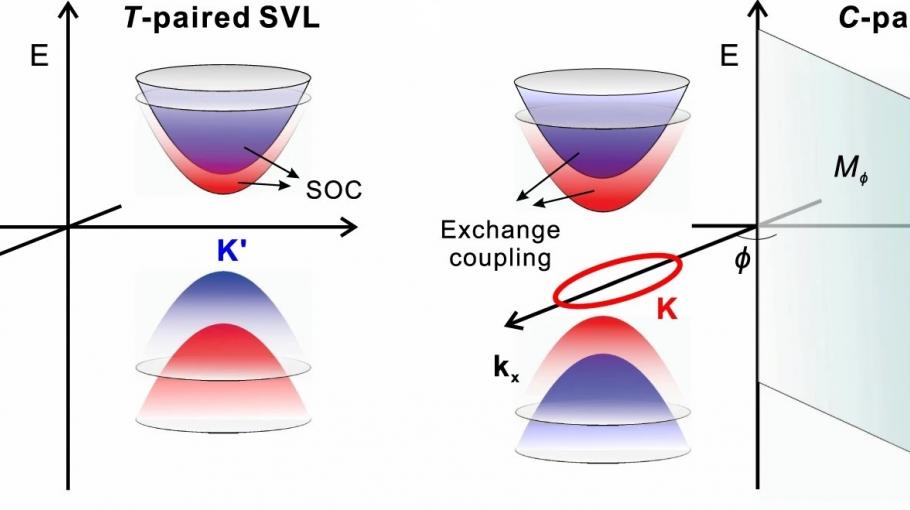A research team led by awards-winning neuroscientist and structural biologist Prof Zhang Mingjie of the Hong Kong University of Science and Technology (HKUST) has recently reached a breakthrough unveiling the fundamental mechanism that causes schizophrenia and other serious psychiatric conditions. Such discovery may potentially lead to the development of new treatments and drugs for the mental disorders. At present, there are about 40,000 diagnosed schizophrenic patients in Hong Kong [1].
Mutations of DISC1 encoding gene – a human gene that regulates various cellular activities including neurogenesis, or the birth of neurons – are known to be associated with major psychiatric disorders for over a decade. However, how the DISC1 protein interacts with many other proteins to impact human brain development has remained unknown until recently, Prof Zhang and his team uncovered the never before known high-resolution structure of DISC1 protein in complex with Ndel1 – a vital protein for neurogenesis and many other aspects of brain functions. The team found that if the formation of DISC1/Ndel1 complex was disrupted by mutations of DISC1 gene, neurogenesis will be delayed and thus may cause mental disorders.
Their findings were just published in a leading neuroscience journal Neuron on December 7, 2017.
“We uncovered a new mechanism of action for DISC1 gene based on its structure, and offered implications of how genetic insults may contribute to schizophrenia and other serious psychiatric disorders,” said Prof Zhang, Kerry Holdings Professor of Science of the Division of Life Science at HKUST. “Sometimes, a basic research finding may seem too far off from clinical implementations. However, these little steps that we and many other scientists are now taking, are fundamental to the laying of foundations for future medical applications that will help save millions of lives,” said Prof Zhang. When Marie Curie, the first woman and the first two-times Nobel Prize winner discovered radium, she was not considering the use of this element, nonetheless it eventually led to the development of chemotherapy which until now remains an important treatment for cancer patients.
Spanning across broad research areas and taking about eight years to complete, Prof Zhang’s multifaceted schizophrenia research received sponsorship from the Research Grants Council as part of the stem cell strategy for nervous system disorders project under the second round exercise of the Theme-based Research Scheme. World-leading neuronal stem cell biologists from the University of Pennsylvania have contributed to the paper using a novel 3D cell culture modelling technology to produce human brain organoids derived from schizophrenia patients.
“The DISC1/Ndel1 structure and their interaction during neurogenesis in animal models and schizophrenia patient-derived human forebrain organoids provide a potential pathological understanding of complex psychiatric disorders that may help the development of new treatments and drugs,” said Dr Ye Fei, Research Assistant Professor at Prof Zhang’s team and a lead author of the paper.
Prof Zhang has long been focusing on the investigation into human brain’s development and growth. His efforts have been recognized by the prestigious New York-based Simons Foundation, which has recently granted him US$720,000 for a 3-year research project that aims to study the gene-protein interactions which are closely related to autism. Locally, Prof Zhang received last week the well-respected Croucher Senior Research Fellow Award 2018-19, he will dedicate the reward to the study of the formation mechanism of synapses – the basic unit of neuronal circuits in the brain, that could pave the way for future drug development in curing mental illnesses.
About The Hong Kong University of Science and Technology
The Hong Kong University of Science and Technology (HKUST) (www.ust.hk) is a world-class research university that focuses on science, technology and business as well as humanities and social science. HKUST offers an international campus, and a holistic and interdisciplinary pedagogy to nurture well-rounded graduates with global vision, a strong entrepreneurial spirit and innovative thinking. HKUST attained the highest proportion of internationally excellent research work in the Research Assessment Exercise 2014 of Hong Kong’s University Grants Committee, and is the world’s second in the latest QS’ Top 50 under 50 ranking. Its graduates were ranked 12th worldwide and top in Greater China in Global Employability University Survey 2017.
[1] http://www.ha.org.hk/ho/corpcomm/Strategic%20Service%20Framework/Mental%20health%20service%20plan%20for%20adults2010-15.pdf
For media enquiries, please contact:


